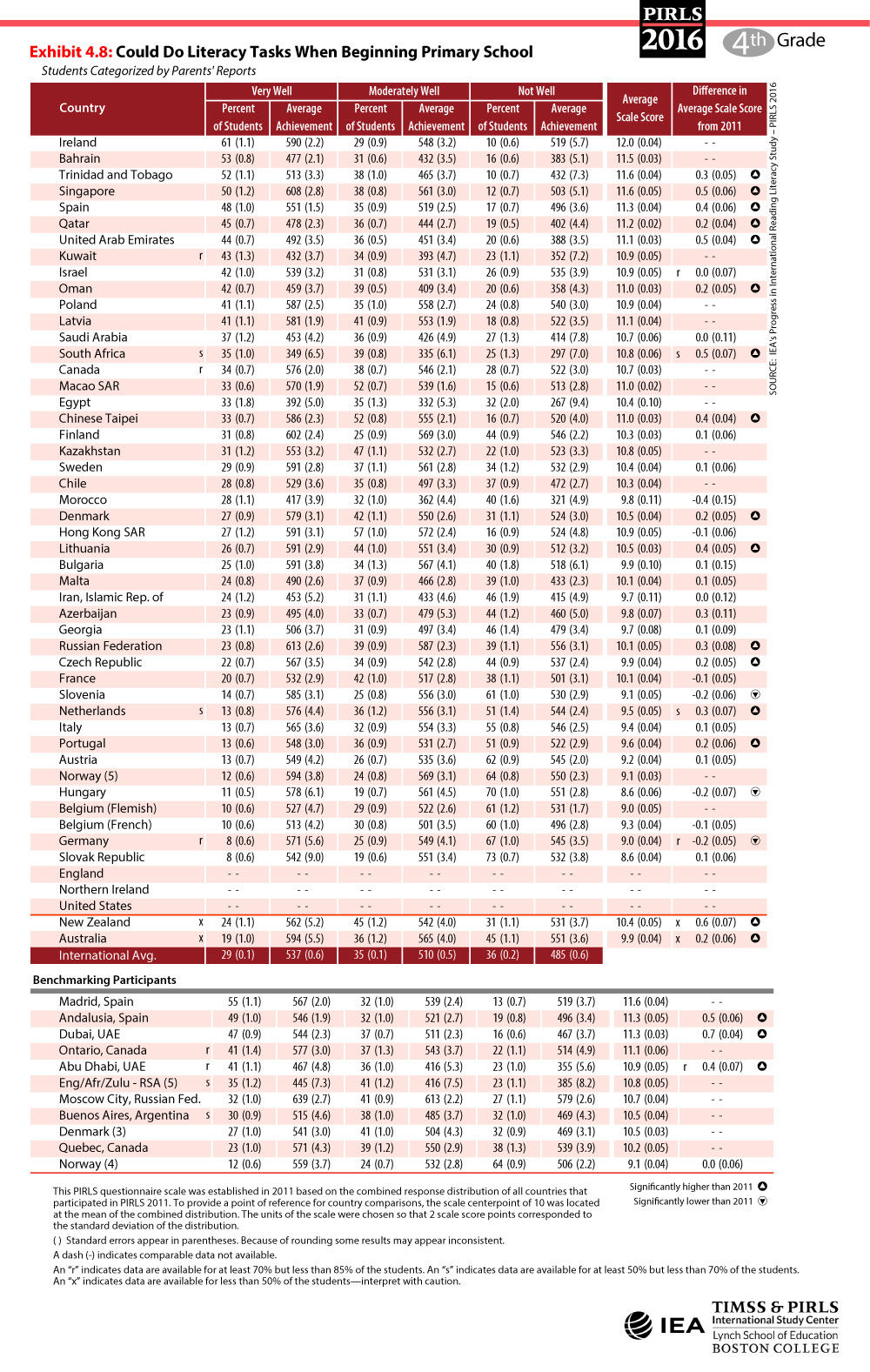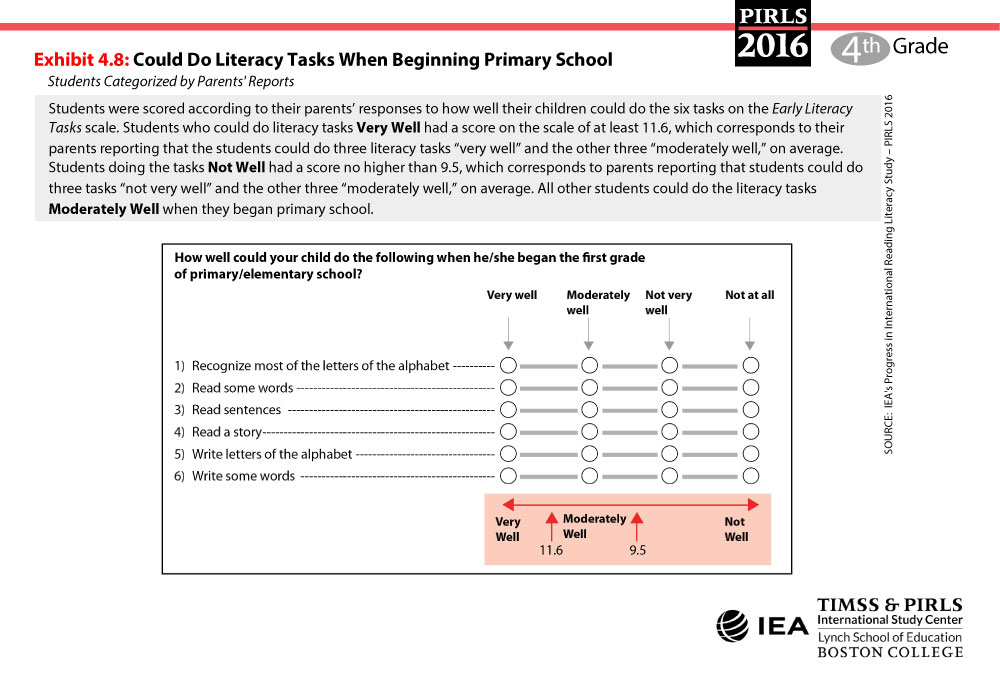To provide information about the extent to which students enter primary school equipped with some basic skills as a foundation for formal reading instruction, the PIRLS assessments have included a set of questions (see “About the Scale”) asking parents how well their child could do various literacy activities when he or she first entered primary school. Parents’ reports indicate that early preparation appears to have an effect through the fourth grade. Exhibit 4.8 shows, on average across countries, that 29 percent of the students entered school able to perform early literacy tasks Very Well according to their parents and another 35 percent Moderately Well. Parent assessment of their children’s early literacy skills corresponded well with reading achievement at the fourth grade, with the children able to perform Very Well having higher achievement than those performing Moderately Well (537 vs. 510). The 36 percent of the students in the Not Well category had the lowest achievement (485).
In 16 countries, students entered primary school with higher average scores in PIRLS 2016 than in PIRLS 2011 on the scale named Early Literacy Tasks. This agrees with the results in Exhibit 4.5 where parents reported more time spent with their children on early literacy development.


